Plastic bag use is at the top of the political agenda, but countless independent retailers are already doing their bit to cut bag use, as Amy Lanning discovers
The headline on the front page of the Daily Mail yelled 'Banish the bags' and immediately the issue of plastic carrier bag use was catapulted into the spotlight.
Prime minister Gordon Brown responded with a declaration to take "necessary steps" to cut the 13 billion plastic bags that are used and discarded each year, and the multiples stepped into the limelight with M&S announcing it is to start charging 5p a bag in May, and Asda pronouncing its intention to remove single-use bags from checkouts in June.
But what wasn't reported was the scores and scores of independent retailers who have been cutting plastic bag use for some years. Conrad Davies, who runs a Spar store in Pwllheli, Gwynedd, for example, has been giving out free bags made from hessian to customers who spend £10 or more in his shops since autumn 2006. He's also sold Spar's NSPCC charity bags for life, and a local free-range egg supplier is now sponsoring a new set of bags. He encourages shoppers to decline a bag if they only have a few items and has reduced plastic bag use by 10-15%.
Meanwhile, Andrew Thornton, who operates a Budgens store in Crouch End, London, reduced bag use from 35,000 a week to 15,000 in the first six months of his scheme, in which he donates 1p to charity for every bag declined by customers.
He's raised £2,000 for a local school, and for the next phase customers will either have to bring their own bags, or choose a 10p plastic bag or £1.99 jute bag. He plans to go plastic bag-free by May.
Michelle Gravelle, who runs two Budgens stores in Hertfordshire, has saved 400,000 bags in seven months since introducing her eco bag. She's also involved the local schools in designing another eco bag, sells plastic bags for life for 10p each, and has moved the free bags to under the till so customers aren't tempted to help themselves to more than they need.
Keith Heffernan began charging 10p a bag in his two Budgens stores in Dorset last month, donating every penny to local charities. He's raised £400, hasn't ordered any bags since January, and his store is using a third of what it was. Keith has also been handing out hessian bags to shoppers who spend more than £20 for the past two Christmases, and is now making that a year-round policy.
Both Michelle and Keith say the key to customer acceptance is for retailers not to be seen to be profiting from charging for bags. "People will object to paying for a bag if they see you profiting from it," says Keith. "We have signs up saying how much we've raised. It is a voluntary payment, but almost everyone pays it. It depends how you sell it to the customer. If you explain what you're doing and why, they're fine."
Michelle adds: "We sell our eco bags at cost - we're not doing it to profiteer. We've designed an eco bag which features the logos of six local schools and we will donate all profits to the schools' funds. We will also donate our cost savings on carrier bags to the fund."
As well as linking reduction in bag use to supporting communities, there's another pay-off to offering a bag for life, as Michelle points out: "It's important for us to be cutting down on plastic bags, but we also like the fact that people are walking about with our name on their bags."
Simple measures such as encouraging customers to refuse a bag, urging people to bring their own bag, or purchasing one of the many bags for life on sale, are easy to implement, but some retailers are taking it even further. On top of all her other schemes, Michelle is looking at the possibility of home compostable bags as an alternative to plastic bags.
The Co-operative Group has already gone down this route. It is launching home compostable carrier bags in a six-week trial in Northampton. If the scheme proves successful, it will roll out to other areas, subject to local demand. Eleven stores are taking part, and staff are being briefed to answer questions from customers and encourage them to use the new bags or reusable shopping bags. Information leaflets on home composting will also be available in store.
Despite all this voluntary activity, Gordon Brown has stuck to his guns, and in the Budget last week chancellor Alistair Darling said: "Given the damage that single-use carrier bags inflict on the environment, we want to be able to take action. We will introduce legislation to impose a charge on them if we have not seen sufficient progress on a voluntary basis. Legislation would come into force in 2009 and, based on other countries' experiences, it could lead to a 90% reduction with about 12 billion fewer plastic bags in circulation. The money raised should go to environmental charities."
It's not yet clear what "sufficient progress" would be, but many retailers welcome an imposed levy. Conrad Davis believes it would put everyone on a level playing field. "I would welcome a tax," he says. "A levy would encourage people to reuse their bags and would put a stop to those customers who take a bag even if they've only got a newspaper. The problem is because we're convenience stores, we get a lot of people just nipping in for an unplanned shop so they don't bring their bags back. That's where the multiples are winning, because people always know they are going there."
It's a total ban on plastic bags that would concern the c-store sector the most. "An outright ban would be crazy and leave us in a real predicament," says Conrad. "When you've got people just nipping in, it would be really awkward if we couldn't give them a bag at all."
Association of Convenience Stores (ACS) public affairs manager Shane Brennan agrees: "By their nature, convenience stores have a high proportion of customers who don't drive there. They may not be on a particular shopping mission, but in transit. It's too draconian and going too far to ban plastic bags."
The ACS is already opposing a ban on bags in London. It has united with the British Retail Consortium to use Parliamentary procedure to petition against the London Local Authorities (Shopping Bags) Bill. ACS chief executive James Lowman says: "London councils are proposing a measure that would severely harm retailers of all kinds, but especially small stores. The proposal would ban not only giving bags away free, but also making bags available for sale.
"We fully support any reductions in the use of plastic bags and have made great strides on a voluntary basis. It is a shame that London councils have proceeded at breakneck speed to this ill thought-out and unworkable alternative."
My Shop Is Your Shop is working on giving independents access to a low-cost, generic cotton bag for life bearing the slogan 'I'm an independent person'. It wants wholesalers to pool their orders so the price to the consumer would match that of the mults.
The headline on the front page of the Daily Mail yelled 'Banish the bags' and immediately the issue of plastic carrier bag use was catapulted into the spotlight.
Prime minister Gordon Brown responded with a declaration to take "necessary steps" to cut the 13 billion plastic bags that are used and discarded each year, and the multiples stepped into the limelight with M&S announcing it is to start charging 5p a bag in May, and Asda pronouncing its intention to remove single-use bags from checkouts in June.
But what wasn't reported was the scores and scores of independent retailers who have been cutting plastic bag use for some years. Conrad Davies, who runs a Spar store in Pwllheli, Gwynedd, for example, has been giving out free bags made from hessian to customers who spend £10 or more in his shops since autumn 2006. He's also sold Spar's NSPCC charity bags for life, and a local free-range egg supplier is now sponsoring a new set of bags. He encourages shoppers to decline a bag if they only have a few items and has reduced plastic bag use by 10-15%.
Meanwhile, Andrew Thornton, who operates a Budgens store in Crouch End, London, reduced bag use from 35,000 a week to 15,000 in the first six months of his scheme, in which he donates 1p to charity for every bag declined by customers.
He's raised £2,000 for a local school, and for the next phase customers will either have to bring their own bags, or choose a 10p plastic bag or £1.99 jute bag. He plans to go plastic bag-free by May.
Michelle Gravelle, who runs two Budgens stores in Hertfordshire, has saved 400,000 bags in seven months since introducing her eco bag. She's also involved the local schools in designing another eco bag, sells plastic bags for life for 10p each, and has moved the free bags to under the till so customers aren't tempted to help themselves to more than they need.
Keith Heffernan began charging 10p a bag in his two Budgens stores in Dorset last month, donating every penny to local charities. He's raised £400, hasn't ordered any bags since January, and his store is using a third of what it was. Keith has also been handing out hessian bags to shoppers who spend more than £20 for the past two Christmases, and is now making that a year-round policy.
Both Michelle and Keith say the key to customer acceptance is for retailers not to be seen to be profiting from charging for bags. "People will object to paying for a bag if they see you profiting from it," says Keith. "We have signs up saying how much we've raised. It is a voluntary payment, but almost everyone pays it. It depends how you sell it to the customer. If you explain what you're doing and why, they're fine."
Michelle adds: "We sell our eco bags at cost - we're not doing it to profiteer. We've designed an eco bag which features the logos of six local schools and we will donate all profits to the schools' funds. We will also donate our cost savings on carrier bags to the fund."
As well as linking reduction in bag use to supporting communities, there's another pay-off to offering a bag for life, as Michelle points out: "It's important for us to be cutting down on plastic bags, but we also like the fact that people are walking about with our name on their bags."
Simple measures such as encouraging customers to refuse a bag, urging people to bring their own bag, or purchasing one of the many bags for life on sale, are easy to implement, but some retailers are taking it even further. On top of all her other schemes, Michelle is looking at the possibility of home compostable bags as an alternative to plastic bags.
The Co-operative Group has already gone down this route. It is launching home compostable carrier bags in a six-week trial in Northampton. If the scheme proves successful, it will roll out to other areas, subject to local demand. Eleven stores are taking part, and staff are being briefed to answer questions from customers and encourage them to use the new bags or reusable shopping bags. Information leaflets on home composting will also be available in store.
Despite all this voluntary activity, Gordon Brown has stuck to his guns, and in the Budget last week chancellor Alistair Darling said: "Given the damage that single-use carrier bags inflict on the environment, we want to be able to take action. We will introduce legislation to impose a charge on them if we have not seen sufficient progress on a voluntary basis. Legislation would come into force in 2009 and, based on other countries' experiences, it could lead to a 90% reduction with about 12 billion fewer plastic bags in circulation. The money raised should go to environmental charities."
It's not yet clear what "sufficient progress" would be, but many retailers welcome an imposed levy. Conrad Davis believes it would put everyone on a level playing field. "I would welcome a tax," he says. "A levy would encourage people to reuse their bags and would put a stop to those customers who take a bag even if they've only got a newspaper. The problem is because we're convenience stores, we get a lot of people just nipping in for an unplanned shop so they don't bring their bags back. That's where the multiples are winning, because people always know they are going there."
It's a total ban on plastic bags that would concern the c-store sector the most. "An outright ban would be crazy and leave us in a real predicament," says Conrad. "When you've got people just nipping in, it would be really awkward if we couldn't give them a bag at all."
Association of Convenience Stores (ACS) public affairs manager Shane Brennan agrees: "By their nature, convenience stores have a high proportion of customers who don't drive there. They may not be on a particular shopping mission, but in transit. It's too draconian and going too far to ban plastic bags."
The ACS is already opposing a ban on bags in London. It has united with the British Retail Consortium to use Parliamentary procedure to petition against the London Local Authorities (Shopping Bags) Bill. ACS chief executive James Lowman says: "London councils are proposing a measure that would severely harm retailers of all kinds, but especially small stores. The proposal would ban not only giving bags away free, but also making bags available for sale.
"We fully support any reductions in the use of plastic bags and have made great strides on a voluntary basis. It is a shame that London councils have proceeded at breakneck speed to this ill thought-out and unworkable alternative."
Indie solution
My Shop Is Your Shop is working on giving independents access to a low-cost, generic cotton bag for life bearing the slogan 'I'm an independent person'. It wants wholesalers to pool their orders so the price to the consumer would match that of the mults.




















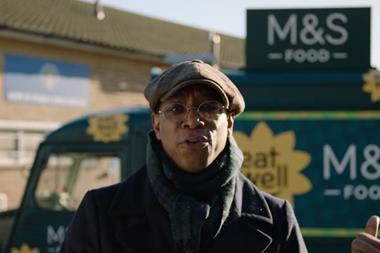
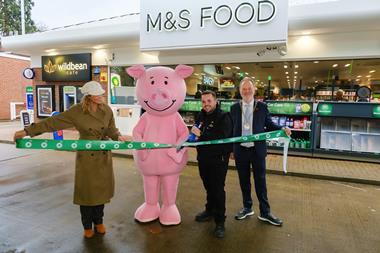
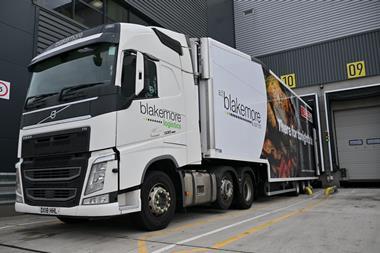
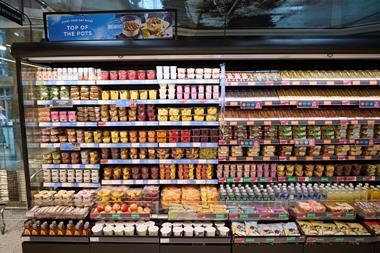



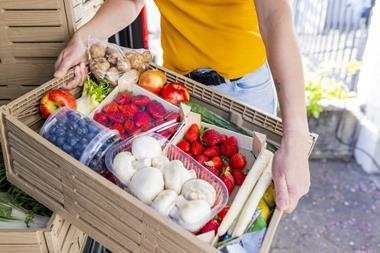



No comments yet